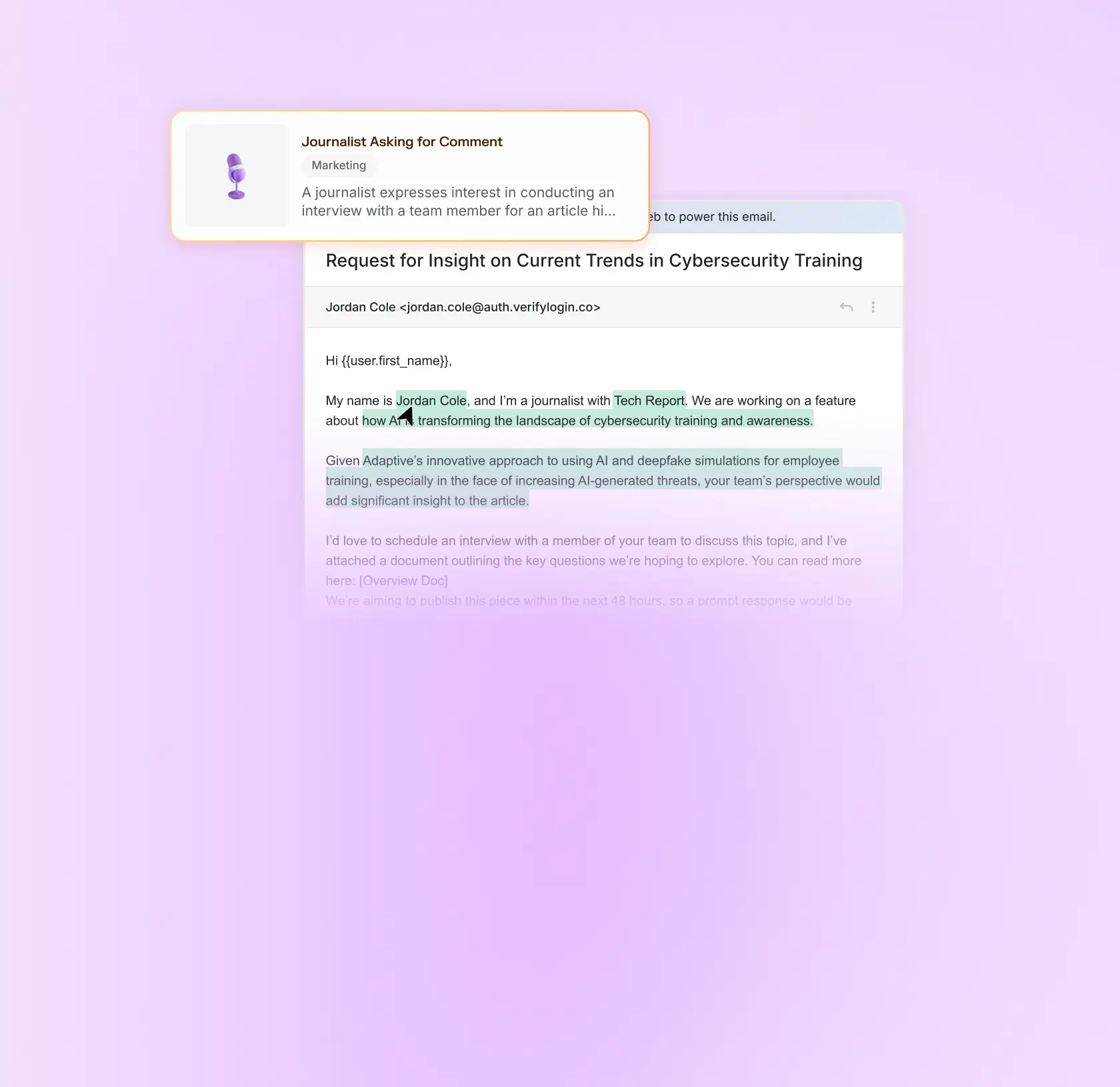Phishing powered by deepfakes and OSINT



















Test your employees on sophisticated AI attacks
Spear phishing simulations featuring company OSINT
Phishing simulations that mirror how attackers actually leverage AI to target your organization.

Run phishing tests with custom AI personas on any attack surface
Multi-channel simulations featuring deepfakes.

Phish reporting button with AI-powered phishing triage
Empower employees to flag attacks while AI handles triage at scale.

Build a culture of security awareness
Become the human defense layer
Stay sharp against AI-powered social engineering. Training builds confidence, reduces mistakes, and helps your team feel prepared instead of pressured.

Deepfake-proof your workforce
Protect the human layer, the target of most cyberattacks, with modern, interactive training and phishing simulations.

Security awareness made simple
Manage everything from one simple platform. Automate employee enrollments, training, phishing, and reporting.

"The deepfake simulations were a huge wake-up call. They fundamentally changed how our employees think about social engineering."

Your questions answered
A phishing simulation is a controlled test that mimics real-world phishing attacks to evaluate how employees respond. It helps identify risky behaviors, like clicking malicious links or sharing credentials, and turns those moments into training opportunities that improve security awareness over time. Many organizations use phishing simulation platforms like Adaptive Security to run these simulations and provide employees with ongoing training.
Run phishing simulations at least monthly to build pattern recognition and reduce click rates over time. Increase frequency during onboarding, after incidents, or when rolling out new threat scenarios like AI-generated voice or SMS attacks. Remember, consistent testing drives long-term behavior change.
Yes, advanced phishing simulations on platforms like Adaptive Security now include deepfakes, vishing (voice phishing), and smishing (SMS phishing). These modern formats mirror real-world attack vectors and help employees build resilience against sophisticated, multi-channel threats.
Yes, AI can dramatically improve the accuracy of phishing simulations by generating realistic, personalized attack scenarios using data from public profiles, breached credentials, or typical communication patterns. These AI-powered simulations better mimic real threats, helping teams identify and reduce human risk more effectively.









